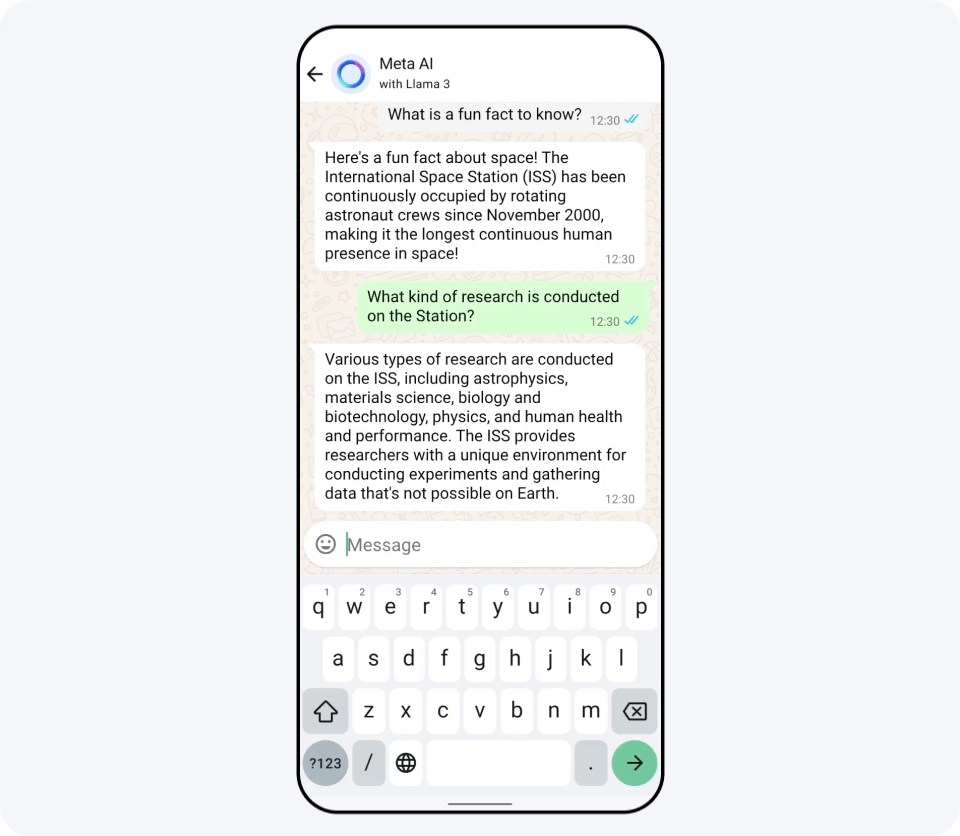Meta, previously Facebook, has become a powerhouse in artificial intelligence. Rooted in innovation and dedicated to expanding technological horizons, Meta AI has become synonymous with cutting-edge research and real-world applications.
Understanding what is Meta AI requires tracing its origins to Facebook, a platform that transformed social interaction. As the company expanded, so did its drive for technological advancement.
Early implementations of AI-enhanced features like news feed curation, friend recommendations, and image analysis, although that part specifically led to the biggest Texas Meta lawsuit settlement up to date. These initial forays laid the groundwork for a dedicated AI division.
What is Meta AI today?
Recognizing AI’s transformative potential, Meta established specialized research labs, including the renowned FAIR (Facebook AI Research), to explore the frontiers of artificial intelligence. This strategic move marked a turning point, as Meta committed to fundamental research alongside product development.
Meta AI’s influence spans various domains, each contributing significantly to the AI technology:
- Natural Language Processing (NLP): Meta has made substantial progress in NLP, enabling more intuitive human-machine interactions. This research drives advancements in conversational agents, language translation, and sentiment analysis.
- Computer Vision: Focusing on image and video comprehension, Meta’s computer vision research has led to breakthroughs in object detection, facial analysis, and augmented reality experiences.
- Machine Learning: As AI’s foundation, Meta invests heavily in developing state-of-the-art machine learning algorithms and techniques. This research underpins the company’s ability to build intelligent systems that evolve and improve over time.
This extensive research and development culminated in the creation of Meta LLaMA, a large language model capable of generating human-quality text, translating languages, writing different kinds of creative content, and answering your questions in an informative way. LLaMA represents a significant milestone in Meta’s AI journey, demonstrating the company’s commitment to pushing the boundaries of language modeling and its potential applications across various fields.
Meta AI’s impact is evident across the company’s platforms such as:
- Content personalization: AI algorithms curate tailored content, boosting user engagement.
- Visual content analysis: AI powers automatic tagging, search, and content moderation.
- Conversational agents: AI-driven assistants provide support and information.

- Creative tools: AI-powered filters enhance visual content.
- Discovery systems: AI suggests relevant posts, accounts, and products.
- AR experiences: AI-driven augmented reality features create immersive content.

- Media verification: AI detects manipulated content to combat misinformation.
- Intelligent responses: AI suggests quick text replies for efficient communication.
- Business solutions: AI-powered features assist in managing customer interactions.

- Conversational agents: AI-driven assistants provide customer support.
- Language bridging: AI enables seamless cross-language communication.
- Visual search: AI helps users locate relevant images within conversations.
While Meta AI has achieved significant milestones, the AI field continually evolves. Issues such as data privacy, bias mitigation, and ethical considerations require ongoing attention. Meta remains committed to addressing these challenges and ensuring responsible AI development.
Therefore, knowing what is Meta AI, Meta AI’s influence extends beyond its primary products. The company actively engages in:
- Collaborative research: Sharing knowledge and code to accelerate AI development.
- AI for societal benefit: Addressing global challenges through AI-driven solutions.
- Hardware optimization: Developing specialized components to enhance AI performance.
How about the future of it?
Looking ahead, Meta AI is poised to explore even more ambitious frontiers. Areas such as advanced language understanding, embodied AI, and AI for scientific discovery are likely to be focal points for future research and innovation.
Meta’s CEO, Mark Zuckerberg, has made it clear: The company’s future is “AI, AI, and more AI“. This vision is backed by substantial financial resources, with Meta generating $39 billion in revenue and $13.5 billion in profit in Q2 2023 alone. This financial strength allows Meta to make significant investments in AI infrastructure and research, positioning itself at the forefront of the AI revolution.
While Meta AI has achieved significant milestones, the AI field continually evolves. The company acknowledges that financial returns from recent AI investments will “come in over a longer period of time”. However, Zuckerberg emphasizes the importance of building capacity ahead of demand.
Meta is also seeing growth in unexpected areas. Facebook is reportedly gaining traction among young adults, challenging public perceptions about its user base. Additionally, Threads, Meta’s new social platform, is approaching 200 million monthly users.
So one last time, what is Meta AI? It’s a testament to the power of ambitious research, ethical innovation, and the relentless pursuit of technological advancement in service of humanity.
Featured image credit: Meta






